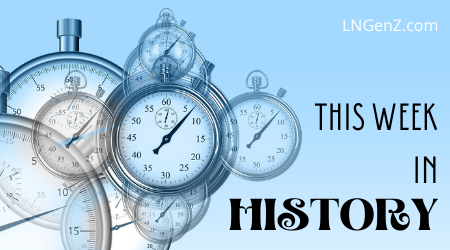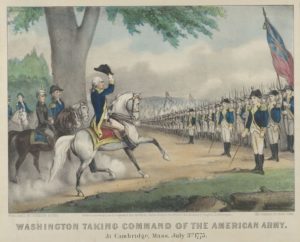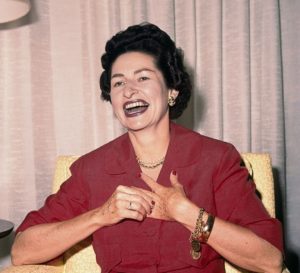This Week in History: December 18 – 24
Expedition to America and the establishment of Jamestown.
By: Kelli Ballard | December 18, 2022 | 1025 Words

Jamestown (Getty Images)
“Hindsight is the historian’s necessary vice.” ~ Hilary Mantel
December 20, 1606: Expedition to America and Establishment of Jamestown
In 1492, Christopher Columbus reached the New World and began a race between countries to establish colonies in the unclaimed territory. For nearly 200 years, Spain dominated the area, but in 1606, the Virginia Company’s expedition to the colonies would become one of the most important explorations because this group of explorers established what many consider to be America’s first real colony: Jamestown, in Virginia.
At the time, the eastern coast was called Virginia, named after Queen Elizabeth 1. Three ships, the Godspeed, the Susan Constant, and the Discovery, left London, England with about 100 men. It took several months before they reached the Chesapeake Bay, where they formed a governing council that included John Smith, whom you might recognize from Disney’s Pocahontas. They looked for a place to settle and finally decided on a narrow peninsula on May 13, 1607. Known as James Forte, James Cittie, and James Town, the new settlement would eventually become what we know today as Jamestown.
Besides becoming one of the first successful colonies in the New World, Jamestown was also where American democracy was born. The House of Burgesses, originally a British governing body, was established in this new colony, and as other colonies were founded, this form of government continued.
Today, Jamestown is still a source of information as archaeologists and researchers continue to excavate the original site of the establishment. They discovered the original fort from 1607, as well as a church and other artifacts from early settlers.
Other Notable History Mentions
December 18, 1916: The Battle of Verdun ended during World War I after ten months of fighting.
 December 18, 1940: Adolf Hitler ordered staff to start planning the invasion of Soviet Russia, which he called “Operation Barbarossa.”
December 18, 1940: Adolf Hitler ordered staff to start planning the invasion of Soviet Russia, which he called “Operation Barbarossa.”
December 18, 1956: Japan became part of the United Nations.
December 19, 1732: Benjamin Franklin, a famous inventor, published Poor Richard’s Almanac for the first time. It offered predictions on the weather as well as humor and proverbs.
December 19, 1946: Ho Chi Minh attacked the French to try and get them to leave Vietnam. This started the Vietnam War which lasted about 30 years.
December 19, 1988: President Bill Clinton was impeached by the House of Representatives which approved two of the four Articles of Impeachment. He was charged with obstructing justice and lying under oath to a federal grand jury.
December 20, 1699: Czar Peter the Great reorganized the Russian calendar so that the New Year was from September 1 to January 1.
December 20, 1860: Leading up to the Civil War, South Carolina became the first state to secede from the Union.
December 20, 1956: The Supreme Court ended the Montgomery bus boycott by integrating the bus system so that blacks were not segregated.
December 20, 1989: The US invaded Panama during “Operation Just Cause.”
December 21: This day marks the beginning of winter in the Northern Hemisphere and the beginning of summer in the Southern Hemisphere.
December 21, 1846: At the University College Hospital in London, anesthesia was used for the first time. It was performed by Robert Liston, who had to amputate the leg of a servant.
December 21, 1972: East and West Germany ended the Cold War by establishing diplomatic ties.

George Washington (Photo by Heritage Art/Heritage Images via Getty Images)
December 21, 1988: Pan American Flight 103 exploded while flying because of a terrorist bomb.
December 21, 1993: Russian President Boris Yeltsin abolished the KGB (Soviet Secret Police).
December 22, 1783: George Washington resigned his commission as the Commander-in-Chief of the American Revolutionary Army.
December 23, 1888: Vincent van Gogh, a Dutch painter, cut off his left ear.
December 23, 1913: Congress passed the Federal Reserve Act, which made it so that the Federal Reserve System served as the country’s central bank.
December 23, 1947: John Bardeen, Walter Brattain, and William Shockley invented the transistor at Bell Laboratories and won the Nobel Prize for the invention.
December 23, 1987: Dick Rutan and Jeana Yeager traveled 24,986 miles in their aircraft Voyager, setting a new world record of flying around the world without stopping to refuel. It took 216 hours.
December 24, 1814: The War of 1812 officially ended as America and Britain signed the Treaty of Ghent.
December 24, 1943: Preparing for D-Day, General Dwight D. Eisenhower was appointed as the Supreme Commander of the allied Expeditionary Force.
Famous Birthdays
William Parry (December 19, 1790) was born in Bath, England. An explorer, he tried to find a Northwest Passage and led expeditions to the Arctic.
Carter Woodson (December 19, 1875) was born in New Canton, Virginia. An historian, he introduced black studies to colleges with works that included The Negro in Our History and The Education of the Negro Prior to 1861.
Harvey S. Firestone (December 20, 1868) was born in Columbiana County, Ohio. He founded the Firestone Tire and Rubber Co. He was also a friend of Thomas Edison and Henry Ford.
Josef Stalin (December 21, 1879), whose full Russian name was Iosif Vissarionovic Stalin, was born under the Georgian name Ioseb Dzhugashvili in the village of Gorgi in Georgia. He was a Soviet Russian leader.

“Lady Bird” Johnson (Getty Images)
Giacomo Puccini (December 22, 1858) was born in Lucca, Tuscany. He is considered the greatest Italian opera composer with such works as La Boheme and Madama Butterfly.
“Lady Bird” Johnson (December 22, 1912) was born in Karnack, Texas. She was the wife of President Lyndon B. Johnson.
Joseph Smith (December 23, 1805) was born in Sharon, Vermont. He founded the Mormon Church of Jesus of Latter-day Saints.
Benjamin Rush (December 24, 1745) was born in Byberry, Pennsylvania. He was one of the signers of the Declaration of Independence and was also a doctor who wrote about mental illness which earned him the title “Father of Psychiatry.” He also disagreed with the current belief that alcohol was good for people and was the first to call alcoholism a chronic disease.
Christopher “Kit” Carson (December 24, 1809) was born in Madison County, Kentucky. He is a famous Old West figure who was an Indian agent, soldier, and trapper.
Howard Hughes (December 24, 1905) was born in Houston, Texas. A movie producer, he was also an aviator and designed the Spruce Goose which was an eight-engine flying boat.
Ignatius Loyola (December 24, 1491) was born Inigo de Onaz y Loyola in northern Spain. He founded the Catholic Jesuit, known also as the Society of Jesus.
















